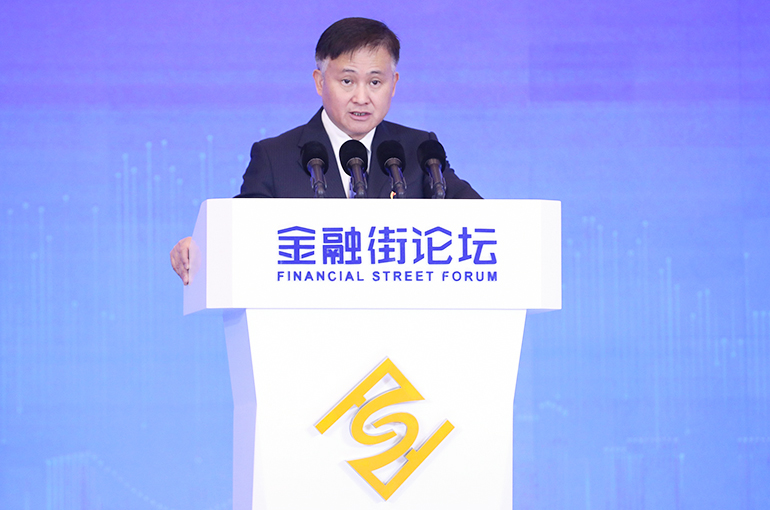 China’s Central Bank to Provide Emergency Liquidity to Debt-Loaded Regions
China’s Central Bank to Provide Emergency Liquidity to Debt-Loaded Regions(Yicai) Nov. 8 -- China’s central bank will provide emergency liquidity to regions with heavy debt as necessary to help local governments resolve debt risks, Governor Pan Gongsheng said.
The People’s Bank of China will work with government departments and local governments to offer financial support for the stable and healthy development of the real estate market, reducing risks and preventing spillovers, Pan said at the Financial Street Forum’s annual conference in Beijing today.
Lending to property sector accounts for 23 percent of banks’ loan balances, with about 80 percent personal mortgages, Pan noted, adding that the overall impact on the financial system of policy changes in the real estate market is manageable.
The number and assets of high-risk financial institutions constitute only a small percentage of the financial system’s total, he said.
The number of high-risk small and mid-sized lenders has halved thanks to the reforms of recent years, Pan added, noting that the PBOC will work with government departments to improve the regime of financial risk monitoring, assessment, and prevention and control as well as establish a financial risk early correction mechanism with hard constraints.
The Ministry of Finance and other government departments have taken four key steps this year to help local governments resolve debt risks prudently, Pan said.
Firstly, they supported local governments and financing platforms to raise funds to repay debts by revitalizing or selling assets. Secondly, they began strictly controlling new government investment projects in regions with heavy debt burdens.
Thirdly, they guided financial institutions to take measures such as extending maturities, refinancing, and swaps to address existing debt risks while tightly controlling incremental debt and establishing a regular monitoring mechanism for financial debt of financing platforms.
And fourthly, they supported local governments to gradually strip the financing function from financing vehicles through mergers and acquisitions or asset injections, thereby transforming the vehicles into market-oriented companies that do not rely on government credit and are independent and sustainable.
Regarding the exchange rate, international markets generally believe the tightening of US borrowing costs is nearing an end, and the momentum for US dollar appreciation is weakening, said Pan, who also heads the State Administration of Foreign Exchange.
The Chinese yuan is mainly stable against a basket of currencies and has strengthened against non-US dollar currencies thanks to China’s continuous economic recovery, he noted, adding that China has the ability, confidence, and favorable conditions to maintain stable exchange rates and keep the yuan steady at a reasonable and balanced level.
Editor: Futura Costaglione